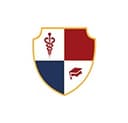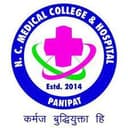Bachelor of Science (BSc) in Cardiovascular Technology
OR
Prepared by Docthub Courses Team ∣
Last updated on 12 Aug 2024
Overview
BSc cardiovascular technology course details are as follows:
The BSc Cardiovascular Technology course is an undergraduate program that focuses on the diagnosis and treatment of heart and vascular diseases. This course provides students with a comprehensive understanding of the cardiovascular system and its functioning, as well as the various diagnostic and therapeutic procedures used in the field
The BSc cardiovascular technology course is designed to equip students with the knowledge and skills required to become cardiovascular technologists. These professionals work alongside cardiologists and other healthcare professionals to diagnose and treat patients with heart and vascular diseases.

Table of Content
Highlights
| Details | Bachelor of Science (B.Sc.) in Cardiovascular Technology |
| Level | Bachelor’s degree |
| Duration | 3 Years |
| Exam Type | Semester-wise |
| Course Fees | INR 2-6 Lakhs per year |
| Min. Qualification Requirement | 10+2 in the science stream with physics, chemistry, and biology. |
| Average Salary | INR 3-5 Lakhs per year |
| Selection Process | Entrance Exam/Merit-based |
| Min. Aggregate Score | 50% or more in 10+2 in science stream |
Eligibility
To be eligible for the BSc cardiovascular technology course, candidates must have completed their 10+2 education in the science stream with subjects such as Physics, Chemistry, and Biology.
Duration
The duration of the Bachelor of Science BSc in cardiovascular technology in India is typically three years.
Fees
The fees for the Bachelor of Science BSc in cardiovascular technology in India may vary depending on the college or university offering the program. The average cardiovascular technology course fees range between INR 2-6 Lakhs per year.
Who Should Do This Course?
BSc cardiovascular technology course is ideal for students who are interested in healthcare and have a passion for helping people with heart and vascular diseases.
Candidates who are detail-oriented, have good communication skills, and are comfortable working in a team may also find this course suitable.
Why Study This Course?
The B.Sc. Cardiovascular Technology course provides students with an in-depth understanding of the cardiovascular system and its functioning, as well as the various diagnostic and therapeutic procedures used in the field.
This course also offers hands-on training in clinical settings, which can help students gain practical experience and prepare them for a career in healthcare.
Admission Process
The admission process for the B.Sc. Cardiovascular Technology course typically involves filling out an application form, submitting academic transcripts, appearing for an entrance exam (if required), and attending a counseling session.
Entrance Exam
Some colleges or universities may require candidates to appear for an entrance exam before being admitted to the B.Sc. Cardiovascular Technology course. The type and format of the entrance exam may vary depending on the institution.
Syllabus
The syllabus for the B.Sc. Cardiovascular Technology courses may vary depending on the college or university offering the program. However, some of the common topics covered in this course include
- Anatomy and physiology of the cardiovascular system
- Electrocardiography
- Echocardiography
- Cardiac catheterization
- Pharmacology
Top Govt Colleges
Some of the top government BSc cardiovascular technology colleges in India include:
- All India Institute of Medical Sciences, New Delhi
- Jawaharlal Institute of Postgraduate Medical Education and Research, Puducherry
- Lokmanya Tilak Municipal Medical College, Mumbai
- Amrita Institute of Medical Sciences, Kochi
- Nizam's Institute of Medical Sciences, Hyderabad
Top Private Colleges
Some of the top private BSc cardiovascular technology colleges in India include:
- Rajiv Gandhi Paramedical Institute, Delhi
- Sri Jayadeva Institute of Cardiovascular Sciences and Research, Bangalore
- KIMS Institute of Medical Sciences, Manipal
- Saveetha Medical College and Hospital, Chennai
- Bharati Vidyapeeth University, Pune
Scope
The BSc cardiovascular technology scope offers a wide range of career opportunities in both private and public healthcare sectors. Graduates of this course can work as cardiovascular technologists, cardiac sonographers, electrocardiogram technicians, or cardiac catheterization technicians.
Further Study Options
After completing the B.Sc. Cardiovascular Technology course, students can pursue higher education options such as a Master of Science (M.Sc.) in Cardiovascular Technology or a Master of Science (M.Sc.) in Cardiology.
Career Opportunities After This Course
Graduates of the B.Sc. Cardiovascular Technology courses can find employment opportunities in hospitals, clinics, diagnostic centers, and research institutions. Some of the job roles that graduates of this course can pursue include cardiovascular technologist, cardiac sonographer, electrocardiogram technician, or cardiac catheterization technician.
Salary
The BSc in cardiovascular technology salary may vary depending on their job role, experience, and employer. However, on average, cardiovascular technologists in India can earn a salary ranging from INR 3-5 lakhs per annum.
Explore colleges for this course
Quick Go Links

Explore this course by location..
by States
Related Job Roles
Related Job Vacancies
View All 17 Jobs

FAQS
Is BSc Cardiovascular Technology a good career?
BSc Cardiovascular Technology is a good career choice for those interested in the medical field and who want to specialize in diagnosing and treating heart and vascular diseases. The demand for skilled cardiovascular technologists is expected to grow in the coming years, making it a lucrative career option.
What is the highest salary for BSc Cardiovascular Technology?
The highest salary for a BSc Cardiovascular Technology can vary depending on factors such as location, experience, and the organization of employment. On average, professionals in this field can expect a salary ranging from INR 3-5 lakhs per annum.
Is BSc Cardiovascular Technology a doctor?
No, BSc Cardiovascular Technology is not a doctor. It is an undergraduate degree program that prepares students to become skilled cardiovascular technologists who assist cardiologists and other medical professionals in diagnosing and treating heart and vascular diseases.
Can B.Sc. cardiology do surgery?
No, BSc Cardiology cannot do surgery. Cardiology is a medical specialty that deals with the diagnosis and treatment of heart and vascular diseases. Surgeons, on the other hand, are medical professionals who specialize in performing surgical procedures.
What is a Bachelor of Science in Cardiovascular Technology?
A Bachelor of Science in Cardiovascular Technology is an undergraduate degree program that prepares students to become skilled cardiovascular technologists who assist cardiologists and other medical professionals in diagnosing and treating heart and vascular diseases.
The program includes subjects such as anatomy, physiology, electrocardiography, echocardiography, and cardiac catheterization. Graduates can pursue various job opportunities in hospitals, clinics, and other healthcare facilities.
Related Course titles

Qualifications
12th Science PCB
Related Specialty
Cardiovascular Pathology





